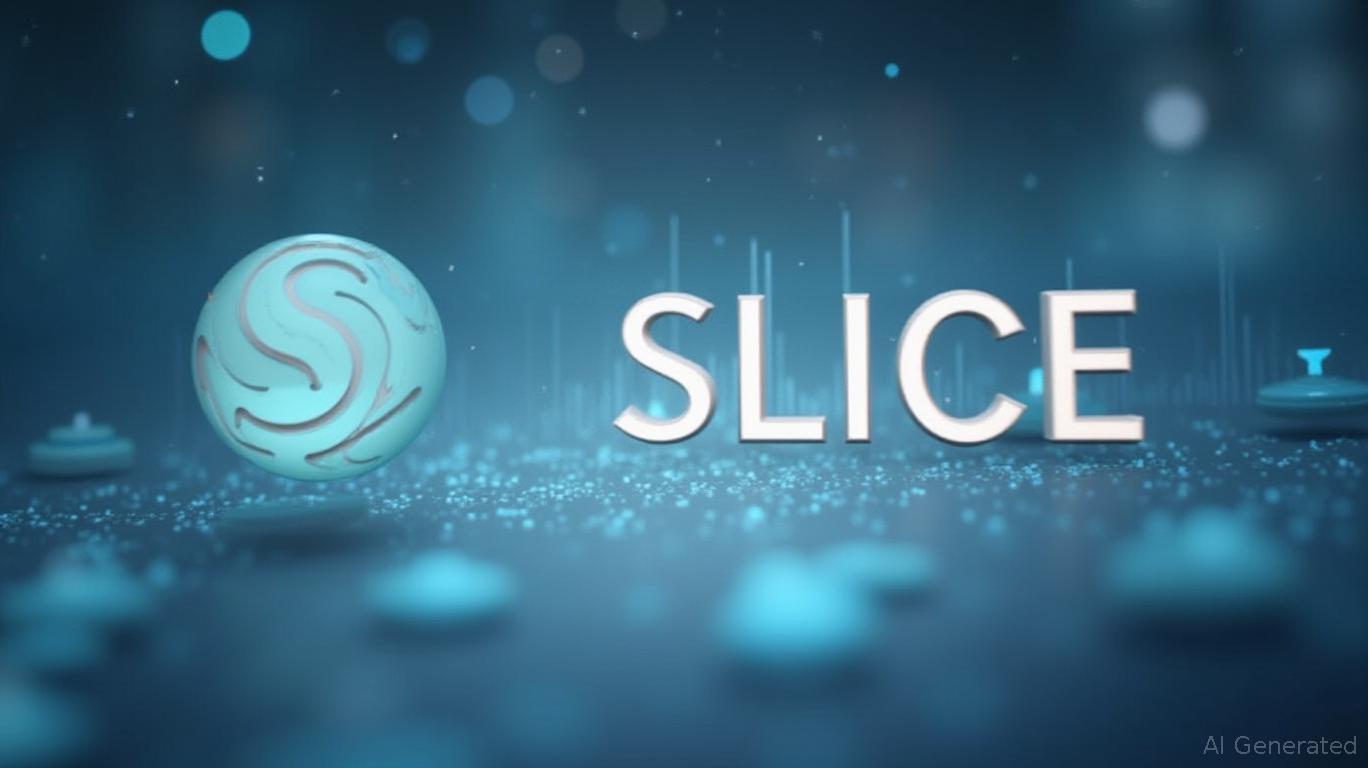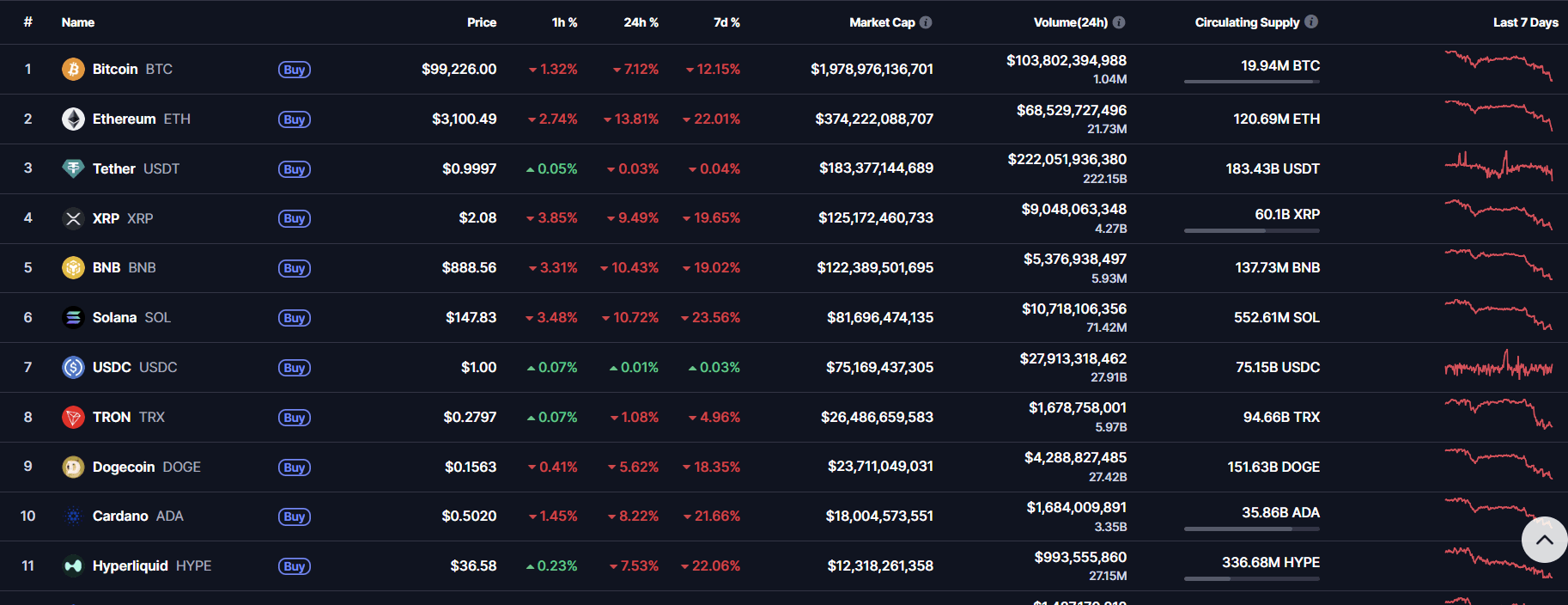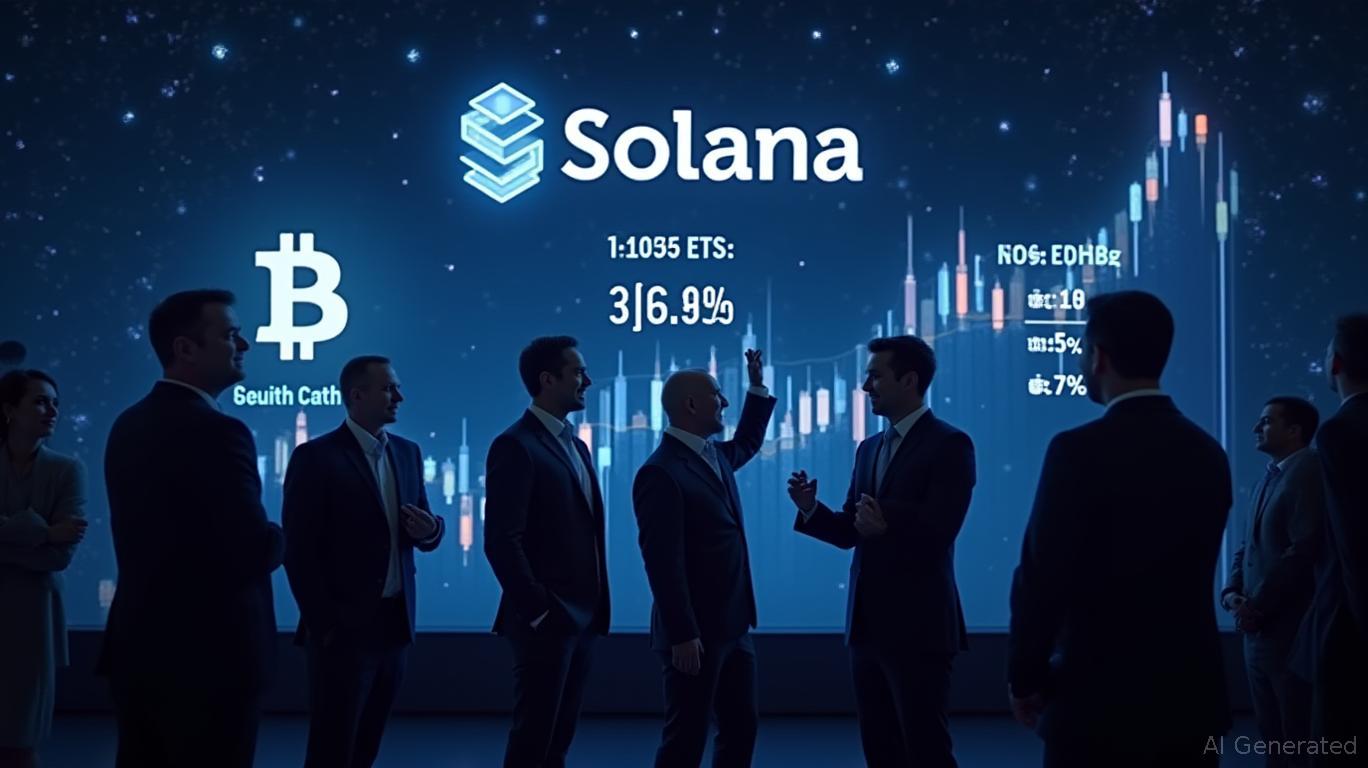Bitcoin News Update: Earn Passive Income While Surfing the Web as Lolli Purchases Slice
- Lolli acquires Slice to unify Bitcoin rewards platforms, accelerating Lightning Network integration for faster, cheaper transactions. - Users can now earn Bitcoin passively via web browsing and social media, lowering adoption barriers beyond e-commerce purchases. - Thesis' acquisition strategy faces criticism over Mezo sidechain integration, with calls for clearer onchain withdrawal options. - The $28M-funded entity aims to streamline earning mechanisms while addressing technical limitations from Lolli's
Lolli, a
By bringing Slice into Lolli’s ecosystem, users now have more ways to earn beyond just shopping online. Previously, Lolli users earned Bitcoin through purchases at affiliated merchants, but with Slice’s integration, they can now accumulate Bitcoin by simply browsing, viewing videos, or scrolling through social platforms. This transition from active to passive earning makes it easier for newcomers to get involved with cryptocurrency, especially those hesitant to invest directly, according to

A central motivation for the acquisition is to speed up Lightning Network support for withdrawals. This Layer 2 solution helps Bitcoin scale by allowing transactions to occur off-chain, which are then finalized on the main blockchain. For frequent, smaller rewards, this approach cuts down both costs and wait times compared to on-chain transfers. "Lightning enables small withdrawals to be cost-effective in ways that Layer-1 never could," Lolli’s team explained in a blog update. This strategy fits with the wider industry push to make Bitcoin suitable for daily transactions, such as micro-payments and direct transfers between users.
Yet, the collaboration between Lolli and Thesis has sparked some debate. Thesis recently faced criticism after adding Mezo, a Bitcoin sidechain compatible with EVM, as a withdrawal method. Some, including Bitcoin advocate Jason Don (Brekkie von Bitcoin), argued that the company failed to properly inform users about the withdrawal changes. "Apparently, we can still 'withdraw' our bitcoin, but now we must join a stablecoin walled garden to do so? Ridiculous," Don posted on X. In reply, Thesis founder Matt Luongo admitted the importance of offering on-chain withdrawal options, but stressed that the company is "beginning with L2s and sidechains" based on insights from Fold’s journey, as detailed by The Block.
This acquisition also reflects Thesis’s larger goal of bringing Bitcoin rewards platforms together. By merging services like Lolli and Slice, the company seeks to simplify the user journey and boost earning possibilities. Luongo shared that overhauling Lolli’s system after the acquisition has been a key focus, with the team gradually rolling out improved app versions to fix technical issues dating back to Lolli’s 2018 launch, according to The Block’s reporting.
Lolli, which secured $8 million in a Series B funding round in 2023 led by Bitkraft Ventures, has raised more than $28 million overall, according to The Block. While the financial terms of the Slice deal remain private, the merger positions the combined company to better compete in a fast-changing sector. Experts believe that combining passive earning features with Lightning Network’s scalability could drive wider adoption, especially as institutional interest in Bitcoin continues to rise.
As Slice’s new features are introduced, users should see more ways to earn Bitcoin in the near future. This partnership highlights a broader trend in crypto, moving from speculative trading toward practical use cases, making Bitcoin rewards increasingly available for everyday online activities.
Disclaimer: The content of this article solely reflects the author's opinion and does not represent the platform in any capacity. This article is not intended to serve as a reference for making investment decisions.
You may also like
Ethereum Crash Deepens: Can the $3K Line Hold or Will It Break Next?

Bitcoin Updates: Swiss Crypto Lending Offers 14% Returns Alongside Bank-Backed Insurance
- Swiss crypto lender Fulcrum offers 14% APR on stablecoins with Lloyd's insurance and FINMA regulation. - Platform uses 50% LTV over-collateralization and institutional-grade security to mitigate market risks. - Targets inflation-hedging investors by bridging traditional finance gaps with insured crypto yields. - Competes with alternatives like Bitget's zero-interest loans but emphasizes regulatory compliance and capital preservation.

Bitcoin News Update: Analyst Highlights How MSTR's Convertible Bonds Prevent Forced Bitcoin Sales
- MSTR's convertible debt structure allows debt repayment via cash, stock, or both, avoiding Bitcoin sales during market downturns. - The company raised €350M through a 10% dividend-bearing euro-denominated preferred stock offering to fund Bitcoin purchases. - Q3 results showed $3.9B operating income from Bitcoin gains, driving a 7.6% stock surge to $273.68 post-earnings. - Risks persist if Bitcoin fails to rally in 2028, potentially forcing partial liquidation amid $1.01B 2027 debt obligations. - MSTR hol

Solana News Today: Solana ETFs Surpass Bitcoin as Staking Returns Attract Institutional Investments
- U.S. spot Solana ETFs (BSOL/GSOL) attracted $199M in 4 days, outperforming Bitcoin/Ethereum ETF outflows. - 7% staking yields drive institutional inflows as investors rotate capital from major crypto assets. - Despite ETF success, SOL price fell below key support levels, raising concerns about $120 price floor. - Strategic staking and treasury purchases boosted Solana's institutional appeal, with $397M in staked assets. - Market remains cautious as ETF competition intensifies, with Bitwise's BSOL outpaci
